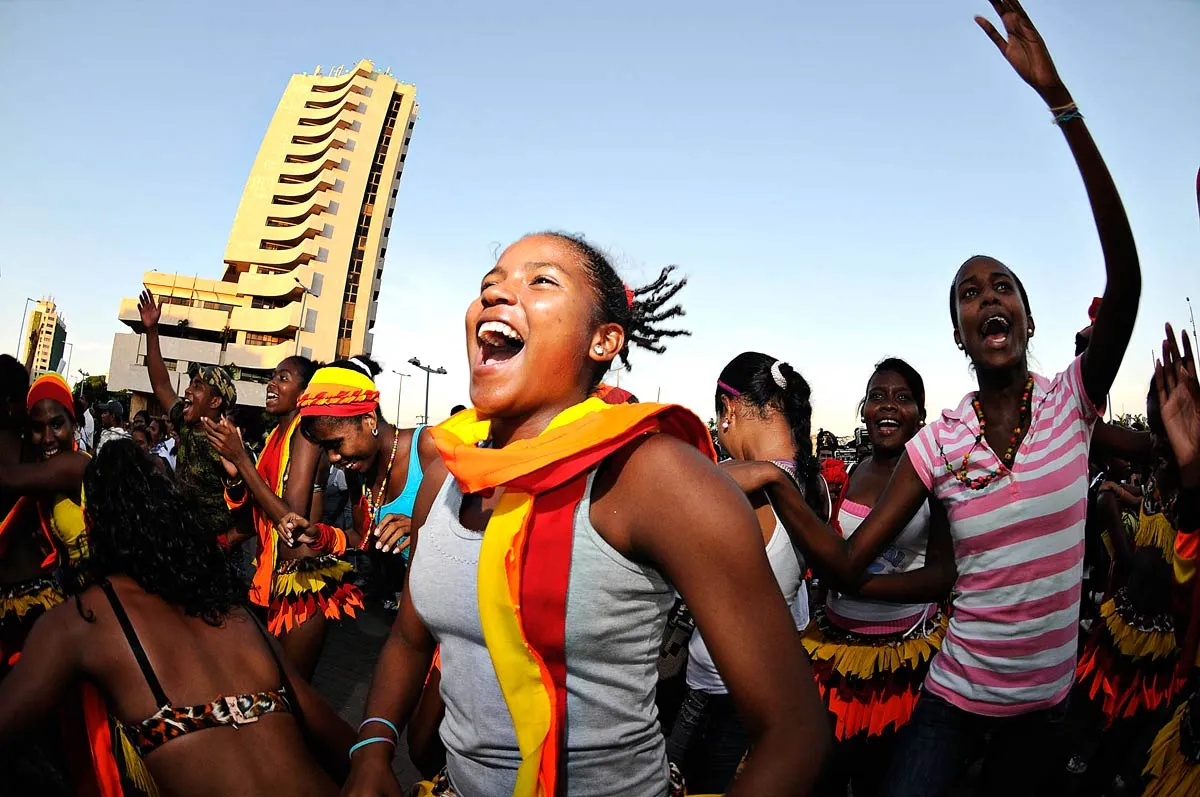Family connections run deep in Colombian life. These tight family bonds extend into marriage and help shape couple and household dynamics in unique ways. From multi-generational living situations to relatives’ active involvement in a couple’s relationship, family plays an integral role at all stages.
Selecting a Partner – Family Circles and Expectations
In Colombia’s communal culture, new relationships, particularly with Colombian single women, often develop from introductions within expansive family social circles. Even in larger cities like Bogota or Medellin, it is common to meet romantic partners, including many Colombian single women, through cousins, siblings, or longtime family friends, reflecting the close-knit nature of the communities.
Once a relationship turns serious, a couple meets each other’s immediate and extended families. They look for approval before progressing to engagement or marriage. This vetting process enables families to steer couples they feel align well with their values or complement existing family social structures. Daughters in particular feel pressure to choose responsible partners approved by their relatives and perceived as beneficial additions to the family system.

Living Situations – Multi-Generational Households
While nowadays most middle-class couples opt to live independently after marriage, working-class newlyweds frequently share a home with parents or in-laws initially. Multi-generational households allow young couples to save money while benefiting from built-in childcare and other support. Although these arrangements promote strong family ties, they also invite complex dynamics around privacy, parenting approaches, and household responsibilities.
Socioeconomic constraints propel most multi-generational housing situations. However, embedded cultural norms emphasizing family closeness and elders’ authority also motivate couples to cohabitate. Grown children feel obliged to care for aging parents and accommodate their wishes. Meanwhile, parents dislike the notion of married children living apart or prioritizing the nuclear family above all else.
Maintaining family Bonds as a Married Couple
Even Colombian couples who set up their independent household after marriage work to maintain very close contact with extended relatives. They typically devote significant time, usually weekends and holidays, to visiting and gathering with parents, siblings, aunts/uncles, cousins, and other kin.
Newly married couples take pride in retaining strong lifelong connections with siblings, cousins, and more distant relatives. Husbands and wives make an effort to attend family events big and small – from birthdays and baptisms to weddings and graduations.
Colombian family members feel integrated into the daily lives of married loved ones as well. Parents, aunts, uncles, and others offer frequent advice on parenting approaches, household management, health decisions, and more personal matters. They see their ongoing involvement as logical and beneficial.
This constant family presence provides built-in support networks for couples, especially valuable when raising children. However, many spouses also find it complicates efforts to set healthy boundaries or disagree with relatives’ opinions. Navigating when and how to integrate or resist family input remains an ongoing balancing act.
In many families, relatives essentially share caregiver duties for children alongside parents. Grandparents, aunts, uncles, and adult cousins all contribute to child-rearing, often watching the little ones for extended hours. This communal parenting dynamic allows couples more freedom but also brings tensions around conflicting disciplinary styles or overall values.
Grown children also assume progressively more caregiving responsibility for aging parents and relatives. Their own nuclear family takes priority, but they still devote considerable time to checking in on, accompanying, and managing health issues for elders. Cousins coordinate these efforts for shared relatives.
In essence, while everyday domestic life centers on the nuclear family, Colombians’ sense of obligation and emotional connection to extended clans persists through all life stages. Marriages only strengthen these bonds as new family branches blossom but remain rooted in past lineage.

Generational Shifts in Family Dynamics
While the communal, family-centric culture persists overall, Colombia’s younger generations demonstrate more independence in their relationships. Millennials and Gen Z show greater willingness to move abroad, live apart from their parents before or after marriage, and focus more attention on their nuclear family.
Still, even Colombians embracing modern globalized lifestyles aim to honor familial obligations and nurture family ties. They utilize technology to communicate frequently with relatives when apart. They also return to spend holidays, celebrate milestones, and care for aging loved ones. In essence, the family remains vital in Colombian marriages. It simply adapts to couples’ evolving needs and values.
Conclusion – Centrality of Family Before and After “I Do”
In Colombia’s familial society, marriage is seen as the blending of two families more so than just the union of individuals. Blood and extended kin relationships retain significance even as romantic bonds deepen. Family approval paves the way toward betrothals while family connections undergird married life.

Of course, levels of family involvement —from matchmaking to living arrangements and beyond – depend on socioeconomic background, region, generation, and individual couple preference. Yet all Colombian newlyweds must balance strengthening their own partnership with nurturing the enduring bonds of family. For better or worse, these familial ties crucially shape Colombian marriages.

